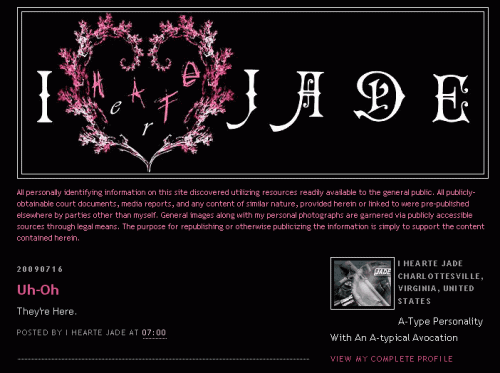Every Memorial Day, I am assaulted with various quotes from people thanking the military for fighting and dying for our right to vote. I would bet that a depressing number of people in this country, when asked what their most important freedom was, or what made America great, would answer "the right to vote."
Now, don't get me wrong, the right to vote in a representative democracy is fine and has proven a moderately effective (but not perfect) check on creeping statism. A democracy, however, in and of itself can still be tyrannical. After all, Hitler was voted into power in Germany, and without checks, majorities in a democracy would be free to vote away anything it wanted from the minority - their property, their liberty, even their life. Even in the US, majorities vote to curtail the rights of minorities all the time, even when those minorities are not impinging on anyone else. In the US today, 51% of the population have voted to take money and property of the other 49%.
In my mind, there are at least three founding principles of the United States that are far more important than the right to vote:
- The Rule of Law. For about 99% of human history, political power has been exercised at the unchecked capricious whim of a few individuals. The great innovation of western countries like the US, and before it England and the Netherlands, has been to subjugate the power of individuals to the rule of law. Criminal justice, adjudication of disputes, contracts, etc. all operate based on a set of laws known to all in advance.
Today the rule of law actually faces a number of threats in this country. One of the most important aspects of the rule of law is that legality (and illegality) can be objectively determined in a repeatable manner from written and well-understood rules. Unfortunately, the massive regulatory and tax code structure in this country have created a set of rules that are subject to change and interpretation constantly at the whim of the regulatory body. Every day, hundreds of people and companies find themselves facing penalties due to an arbitrary interpretation of obscure regulations (examples I have seen personally here).
- Sanctity and Protection of Individual Rights. Laws, though, can be changed. In a democracy, with a strong rule of law, we could still legally pass a law that said, say, that no one is allowed to criticize or hurt the feelings of a white person. What prevents such laws from getting passed (except at major universities) is a protection of freedom of speech, or, more broadly, a recognition that individuals have certain rights that no law or vote may take away. These rights are typically outlined in a Constitution, but are not worth the paper they are written on unless a society has the desire and will, not to mention the political processes in place, to protect these rights and make the Constitution real.
Today, even in the US, we do a pretty mixed job of protecting individual rights, strongly protecting some (like free speech) while letting others, such as property rights or freedom of association, slide.
- Government is our servant. The central, really very new concept on which this country was founded is that an individual's rights do not flow from government, but are inherent to man. That government in fact only makes sense to the extent that it is our servant in the defense of our rights, rather than as the vessel from which these rights grudgingly flow.
Statists of all stripes have tried to challenge this assumption over the last 100 years. While their exact details have varied, every statist has tried to create some larger entity to which the individual should be subjugated: the Proletariat, the common good, God, the master race. They all hold in common that the government's job is to sacrifice one group to another. A common approach among modern statists is to create a myriad of new non-rights to dilute and replace our fundamental rights as individuals. These new non-rights, such as the "right" to health care, a job, education, or even recreation, for god sakes, are meaningless in a free society, as they can't exist unless one
person is harnessed involuntarily to provide them to another person.
These non-rights are the exact opposite of freedom, and in fact require
enslavement and sacrifice of one group to another.
Don't believe that this is what statists are working for? The other day I saw this quote from the increasingly insane Lou Dobbs (Did you ever suspect that Lou got pulled into a room a while back by some strange power broker as did Howard Beale in Network?):
Our population explosion not only detracts from our quality of life but
threatens our liberties and freedom as well. As Cornell's Pimentel puts
it, "Back when we had, say, 100 million people in the U.S., when I
voted, I was one of 100 million people. Today, I am one of 285 million
people, so my vote and impact decreases with the increase in the
population." Pimentel adds, "So our freedoms also go down the drain."
What?? In a society with a rule of law protecting individual rights, how does having a diluted vote reduce your freedom? The only way it does, and therefore what must be in the author's head, is if one looks at government as a statist tug of war, with various parties jockeying for a majority so they can plunder the minority. But in this case, freedom and rule of law are already dead, so what does a dilution of vote matter? He is arguing that dilution of political power reduces freedom "” this country was rightly founded on just the opposite notion, that freedom requires a dilution of political power. What he is really upset about is someone is wielding coercive power and its not him.
At the end of the day, our freedoms in this country will only last so long as we as a nation continue to hold to the principle that our rights as individuals are our own, and the government's job is to protect them, not to ration them. Without this common belief, all the other institutions we have discussed, from voting to the rule of law to the Constitution, can be subverted in time.
So to America's soldiers, thank you. Thank you for protecting this fragile and historically unique notion that men and women own themselves and their lives.
Update: A corollary to all this is that "self-determination for an ethnically homogeneous group" is not among the key factors above. Which is where Woodrow Wilson went so far wrong. I have said for years we need to start over with the UN and build a new organization for multi-lateral cooperation based on principles of individual rights. Here is the UN by contrast, in a press release by its Human Rights Council honoring Cuba:
Cuba had withstood many tests, and continued to uphold the principles of objectivity, impartiality and independence in pursuance of the realisation of human rights. Cuba was and remained a good example of the respect for human rights, including economic, social and cultural rights. The Universal Periodic Review of Cuba clearly reflected the progress made by Cuba and the Cuban people in the protection and promotion of human rights, and showed the constructive and responsive answer of Cuba to the situation of human rights. Cuba was the victim of an unjust embargo, but despite this obstacle, it was very active in the field of human rights.






